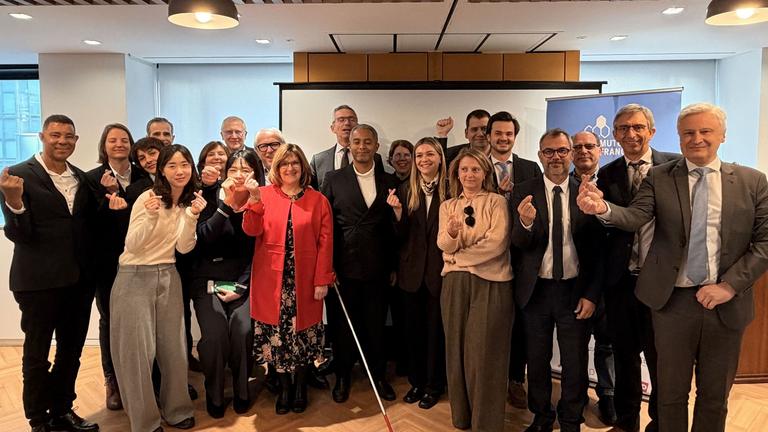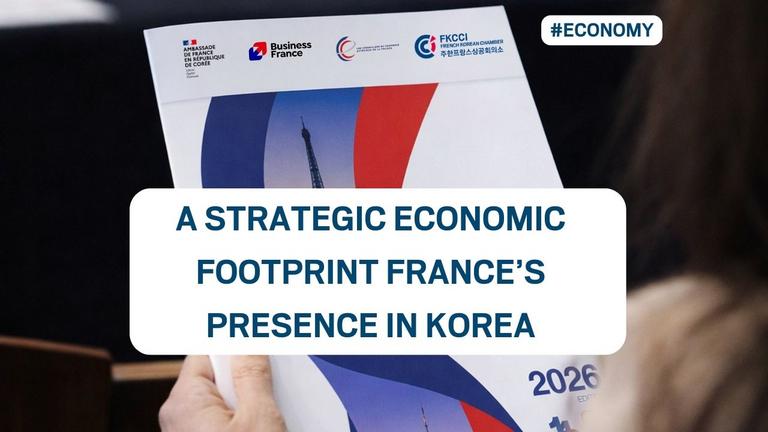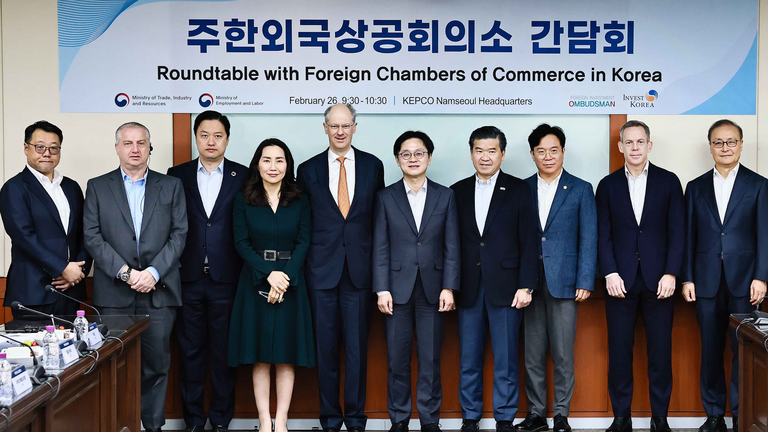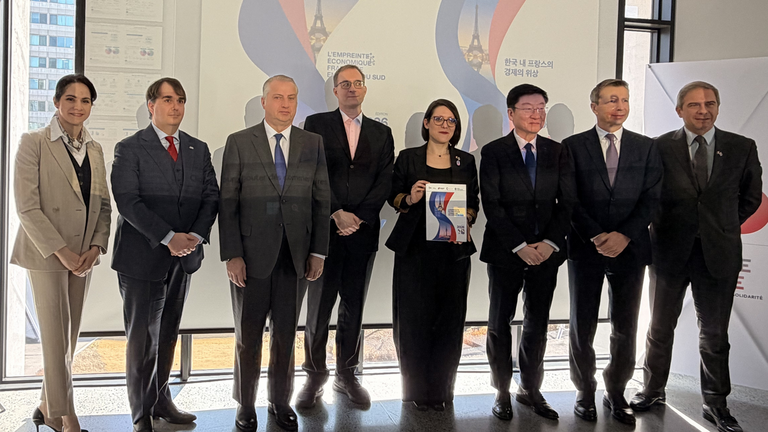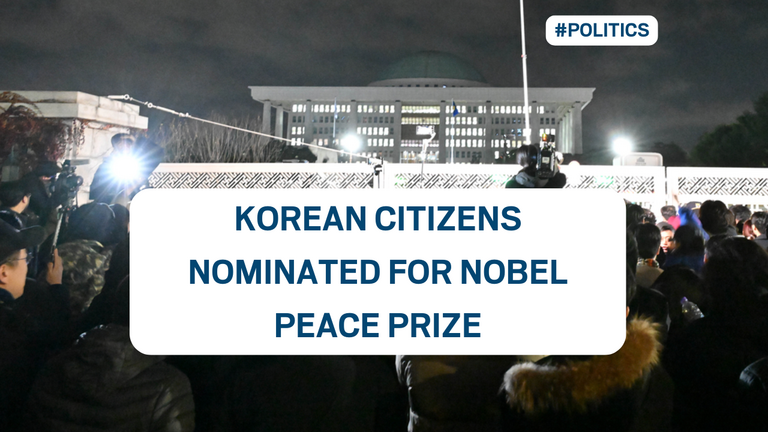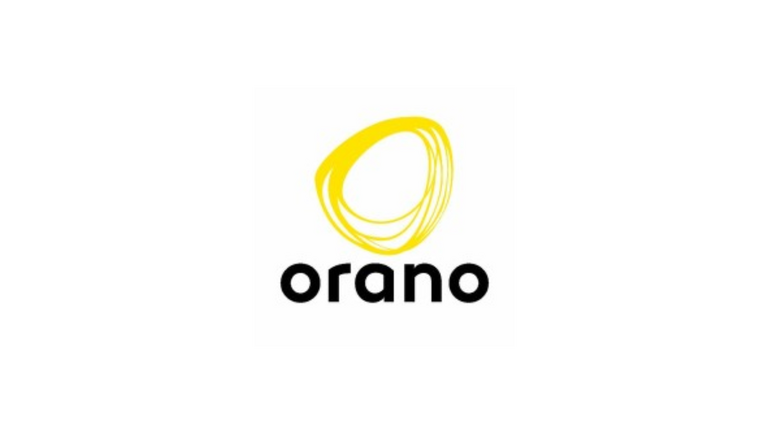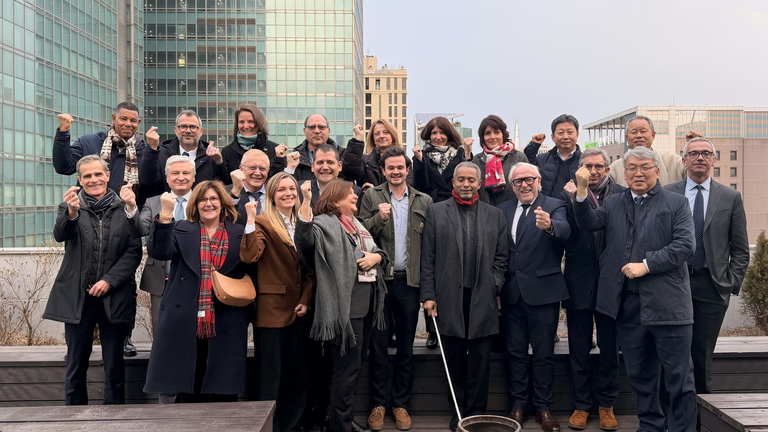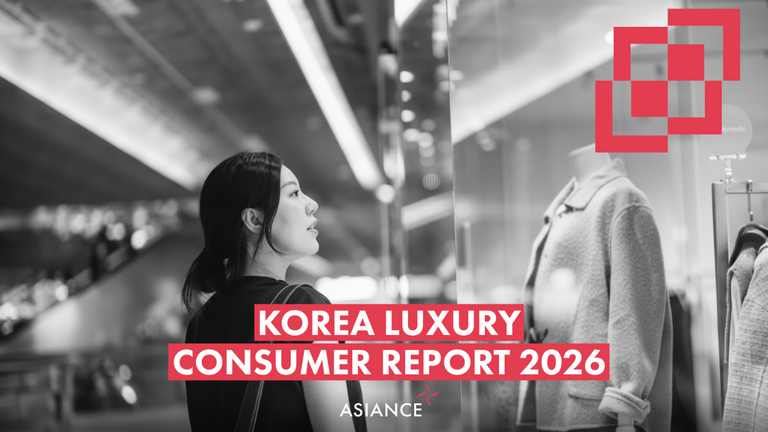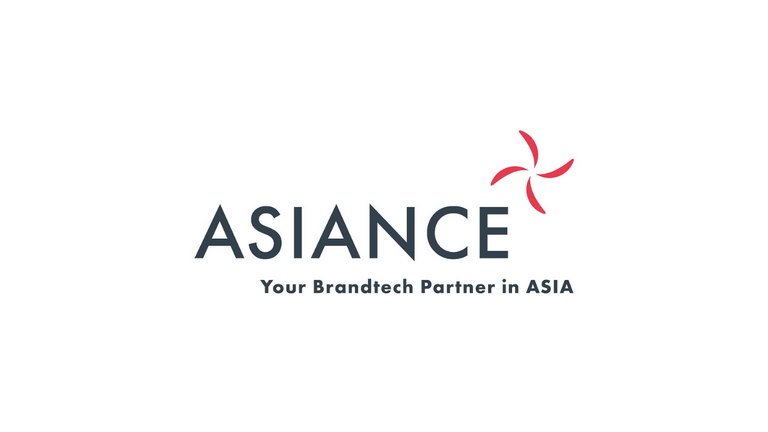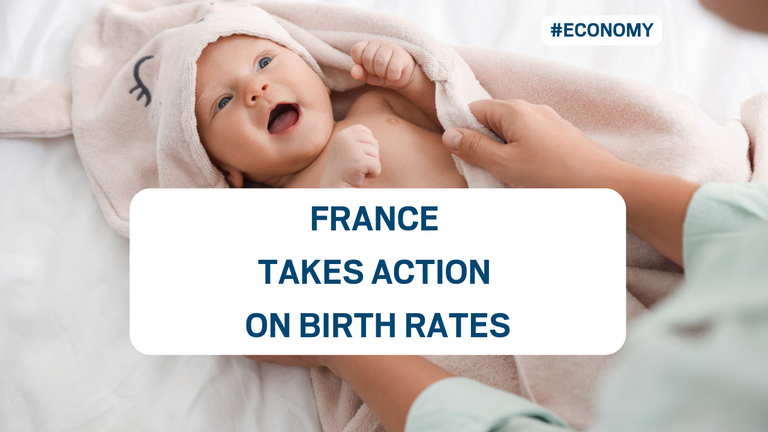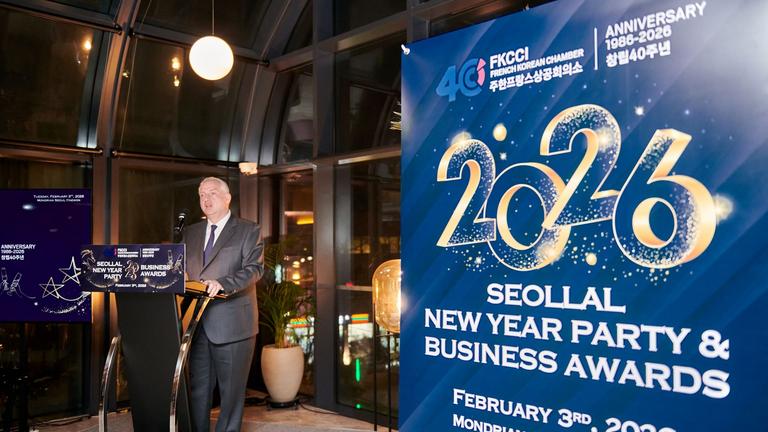Rückblick auf... • Bilans d’évènement
PwC France Chairman presents the results of the 22nd Global CEO survey
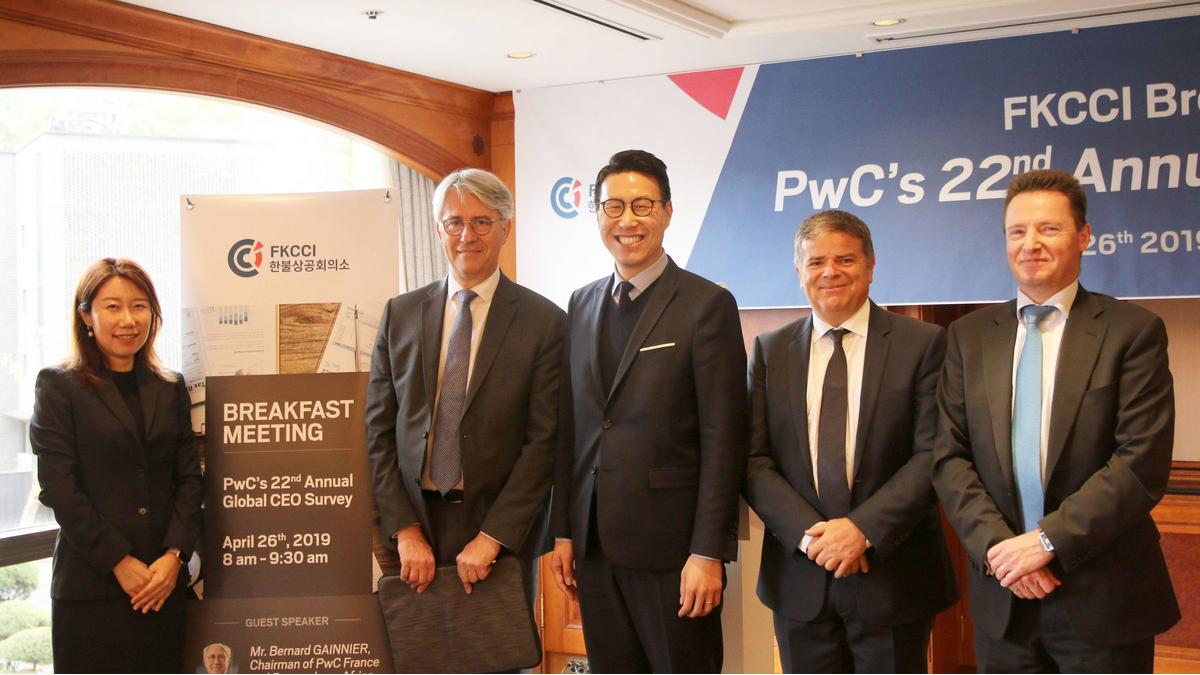
On April 26th, FKCCI welcomed Mr. Bernard Gainnier, PwC France Chairman, at our Breakfast Meeting to discuss the results of the 22nd Global CEO survey. Based on the answers of more than 1300 CEOs, the survey reveals a strong decline in confidence in terms of economic prospects for 2019. Trade conflicts, political upset and a projected slowdown in global economic growth have increased uncertainty and decreased confidence in revenue prospects. Indeed, the decrease in international trade, and the trade battle between China and the USA have diminished CEOs confidence for the world economy’s future.
CEOs are concerned about overregulation across the world, and the availability of key skills to address to the market needs. The rise of technology has made it more difficult for CEOs to recruit the right people with the targeted skills. Indeed, companies must find the ability to include technology in their product and services for their clients. Therefore, this new challenge requires substantial investments in order to educate and train people to be more open, innovative, collaborative while considering environmental issues. Hence, the skill set needs to be changed and be put in perspective.
Moreover, governmental policies, trade conflicts and geopolitical uncertainty have also had a big impact on companies’ behavior. Companies should find a way to be global and local at the same time. This means finding the capacity to be integrated in the way of doing business with technology but at the same time been able to work with local people and understanding the local market, policies and regulations.
Inequalities rise concern amongst CEOs
After WWII, poverty decreased but still, the middle class in developed countries is under increasing pressure. Indeed, the economy is more global, and technology has disrupted the supply chain. Nowadays, Asia is booming and remains the best area to invest, hence creating a massive shift of capital and activities from the West to the East and especially to China. Thereby, the middle-class is challenging the actual system in which growth only benefits to a limited number of people despite the global growth of the world.
“Big companies need to ask themselves: are we part of the problem or of the solution?” said Mr. Gainnier. Regarding those inequality issues, Mr. Gainnier emphasized the necessity for big companies to move from a profit-only economy to an economy more focused on social and environmental issues. In order to be recognized as a good investor and a good citizen, big companies must provide benefits for society in a broader view. PwC believes there are different measures that can be taken to face these issues such as protecting employees in their jobs. One of the major challenges for companies will be to upskill their employees, not only in technology, but in the way they work together as technology allows to decide and change the way the organization is managed.
What does it mean to have a purpose as a company?
“If you want to attract people, you need to give them a vision, not only for profit, but also for environmental issues, including the way you behave internally in terms of values because expectations of young people are different. To be seen as part of the solution as a company, you must recruit the right people, with the right values and purpose for society.” Mentioned Mr. Gainnier.
The advice PwC wishes to give to governments is to introduce more local policies in order to avoid the feeling of disconnection among the people with governments’ global policies. The sense of having a purpose for the economy needs to be realigned as well, thereby changing the way companies will be doing business in the future.
